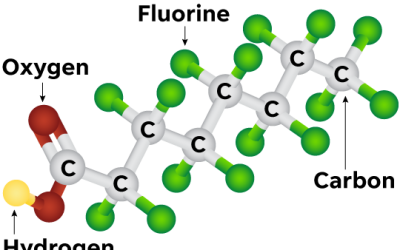Il giorno 16 Giugno 2023 il Prof. Abraham Esteve-Nunez (Universidad de Alcalà), in visita presso il gruppo di Bioprocessi nella sede CNR-IRSA di Montelibretti, terrà un seminario dal titolo ” Two decades of electromicrobiology cleaning up the environment. Quo vadis MET?”, dalle ore 11:30 alle ore 13:00 circa.
Electrobioremediation is a new branch of the biotechnology tree responsible for enhancing biodegradation capacity of microorganisms by means of electrochemical tools. Wastewater (ww) has been certainly the most tested matrix for hosting Microbial Electrochemical Technologies (MET) due to the potential conversion of the chemical energy contained in organic pollutants into electrical power. However, we needed roughly ten years to realize Microbial Fuel Cells could not compete with commercial solutions based on renewables energies. Despite this bottleneck researchers in the field have developed a plethora of devices and applications with electromicrobiology as key actor.
In a wastewater context, the largest electrobioremediation strategy so far corresponds to a solution socalled METland®, where electrochemical concepts are integrated in already existing wastewater treatment solution: the constructed wetlands. The hybrid solution is indeed a biofilter made of electroconductive sustainable materials as EC-biochar to enhance microbial oxidation of pollutants and reduce the footprint of this nature-based solution as low as 40 m2 for treating ww from 1000 pe. The system has evolved to modular construction so it can be used as plug and play solutions for treating also industrial water from oil&gas, food&beverage, pharma sectors to name a few. Solid electrodes (eg. rods, plates, granules, and felts) are typically used as electroconductive materials to support biofilm growth in conventional microbial electrochemistry, diffusion and migration processes could limit the performance for optimal biodegradation rates. To overcome such limitation, we developed a game changer: the microbial electrochemical fluidized bed reactor (ME-FBR). Core element is a fluid-like electrode to minimize mass transfer and energy limitations while simultaneously enhancing the activity of both electroactive planktonic and electroactive biofilms in the bioreactor. Indeed, a fluid-like anode has been shown to be efficient for removing organic pollutants and recovering nitrogen from industrial brewery wastewater in for of phototrophic purple bacteria (PPB).
Finally, electrobioremediation generate “useful electrons” that may be used to monitor water quality (biosensors) or drive desalination if performed devices calles Microbial Desalination Cells. So, MDC represents a hybrid concept in which energy from an organic pollutants can be directly used in a passive device to produce fresh water (i.e. indirect use of energy). MDC technology has been extensively studied in order to increase the desalinated water production while maintaining low energy requirements resulting in the first demonstration of MDC-RO technology.
Sarà possibile partecipare da remoto al seminario attraverso la piattaforma GoToMeeting.
Le informazioni relative al seminario e alla registrazione sono raggiungibili al seguente link
Contatti:
Federico Aulenta – CNR IRSA, sede di Roma – federico.aulenta@irsa.cnr.it
Carolina Cruz Viggi – CNR IRSA, sede di Roma – carolina.cruzviggi@irsa.cnr.it

